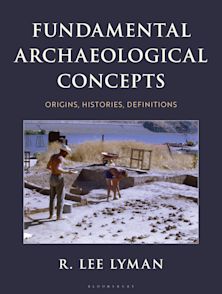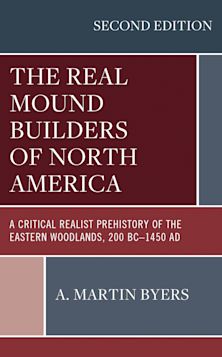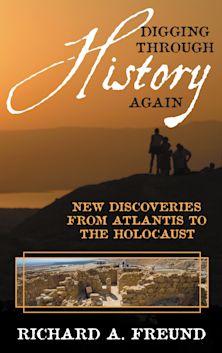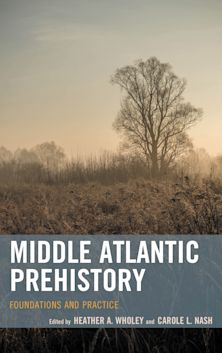- Home
- ACADEMIC
- Archaeology
- Archaeology - Other
- Collaboration in Archaeological Practice
Collaboration in Archaeological Practice
Engaging Descendant Communities
- Textbook
Collaboration in Archaeological Practice
Engaging Descendant Communities
- Textbook
Inspection copy added to basket
This title is available for inspection copy requests.
Please note our inspection copies are only available in ebook format, and are fulfilled by VitalSource™. If an ebook isn’t available, please visit our inspection copy page for more information.
Buy from Bloomsbury eTextBooks
You are now leaving the Bloomsbury Publishing website. Your eBook purchase will be with our partner https://www.vitalsource.com.
Your credit card statement will show this purchase originating from VitalSource Technologies. They will also provide any technical assistance you might require.
You must sign in to add this item to your wishlist. Please sign in or create an account
Description
In Collaboration in Archaeological Practice, prominent archaeologists reflect on their experiences collaborating with descendant communities (peoples whose ancestors are the subject of archaeological research). They offer philosophical and practical advice on how to improve the practice of archaeology by actively involving native peoples and other interested groups in research.
Table of Contents
Chapter 2 The Collaborative Continuum
Chapter 3 Navigating the Fluidity of Social Identity: Collaborative Research into Cultural Affiliation in the American Southwest
Chapter 4 Unusual of "Extreme" Beliefs About the Past: Community Identity and Dealing with the Fringe
Chapter 5 Things Are Not Always What They Seem: Indigenous Knowledge and Pattern Recognition in Archaeological Analysis
Chapter 6 Not the End, Not the Middle, But the Beginning: Repatriation as a Transformative Mechanism for Archaeologists and Indigenous Peoples
Chapter 7 Heritage Ethics and Descendant Communities
Chapter 8 Collaboration Means Equality, Respect, and Reciprocity: A Conversation About Archaeology and the Hopi Tribe
Chapter 9 The Ethics of Collaboration: Whose Culture? Whose Intellectual Property? Who Benefits?
Chapter 10 New Africa: Understanding the Americanization of African Descent Groups Through Archaeology
Chapter 11 "I Wish for Paradise": Memory and Class in Hampden, Baltimore
Chapter 12 Entering the Agora: Archaeology, Conservation, and Indigenous Peoples in the Amazon
Chapter 13 Collaborative Encounters
Product details
| Published | 28 Nov 2007 |
|---|---|
| Format | Ebook (PDF) |
| Edition | 1st |
| Extent | 1 |
| ISBN | 9798216236115 |
| Imprint | AltaMira Press |
| Series | Archaeology in Society |
| Publisher | Bloomsbury Publishing |
About the contributors
Reviews
-
Colwell-Chanthaphonh and Ferguson have produced a provocative, insightful, and forward-looking book of international scope that has tremendous relevance for indigenous peoples and the archaeologists who work with and for them. In an era when archaeologists still struggle with the relevance of the past for the present, with making their work both responsive and responsible, this volume reveals just how important and successful that process can be. Its impact will be palpable, inspiring current and future researchers and community members to create mutually beneficial collaborative archaeologies.
Stephen W. Silliman, associate professor of anthropology, University of Massachusetts, Boston
-
This book deals explicitly with a topic that archaeologists have long avoided or dealt with implicitly. The relationships between archaeologists and the communities with whom they work are here discussed in refreshing ways by an exciting set of distinguished authors. They demonstrate the wider changes in the discipline resulting from an explicit approach that takes collaboration seriously.
Ian Hodder, Stanford University
-
Recommended.
Choice Reviews
-
The volume successfully fulfills the editors' aims set out in the introduction: 'to fill a gap in the current literature...[by providing] a theoretical perspective and broad interrogation of collaboration's multiplex applications.'
2008, Collaborative Anthropologies
-
Collaboration in Archaeological Practice is a particularly relevant and important collection of essays. Indigenous voices are prominent throughout the book, in the selection of authors as well as the discussions concerning the participation of local representatives, which are integral to any truly collaborative research project. There is a great deal of useful and thought-provoking information relevant to any researcher engaged in archaeological and/or ethnographic fieldwork, no matter the location. Collaboration in Archaeological Practice is reflective of the recent sea-change in research across disciplinary boundaries that recognizes the importance and agency of indigenous voices. The book is a welcome and useful addition for anyone involved in, or even considering, field research.
Christopher Slogar, H-Net: Humanities and Social Science Reviews Online
-
This book is precisely what is needed in archaeology at this juncture. As interest in collaborative research grows, there are few tangible examples out there that provide ideas to someone unfamiliar with collaboration in archaeology, even fewer that are appropriately theoretically engaged. This book helps to bridge that gap. It offers a global view that includes both indigenous and non-indigenous communities from a range of temporal and geographic contexts. For anyone interested in exploring collaborative research-academics, professional archaeologists, students, and communities-this book should be at the top of your reading list.
Sonya Atalay, Department of Anthropology, Indiana University

ONLINE RESOURCES
Bloomsbury Collections
This book is available on Bloomsbury Collections where your library has access.



































